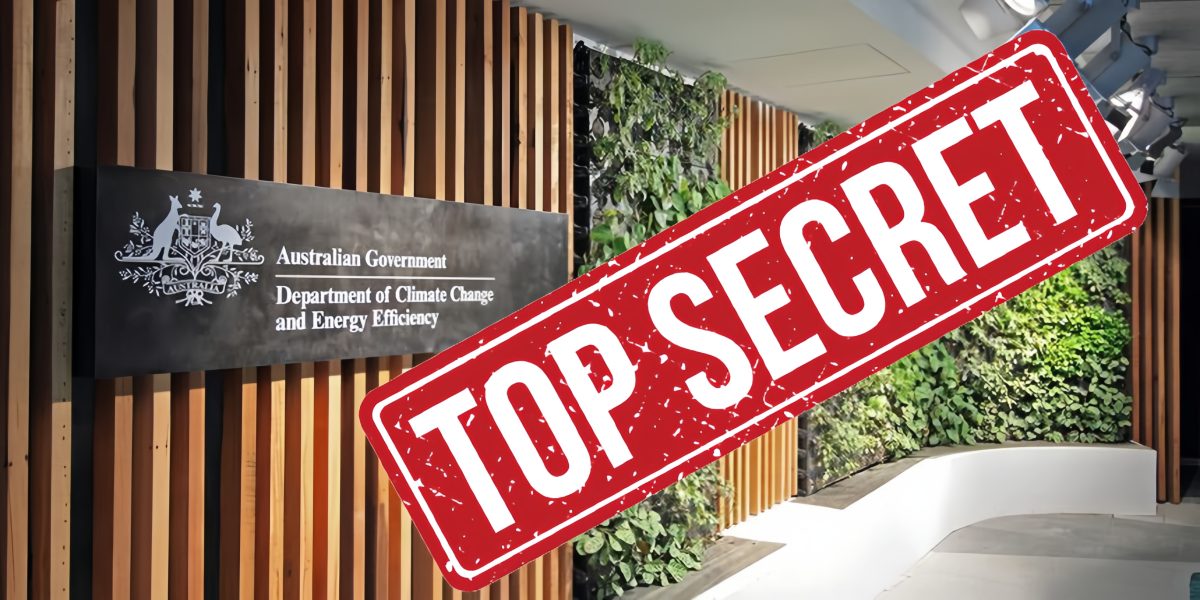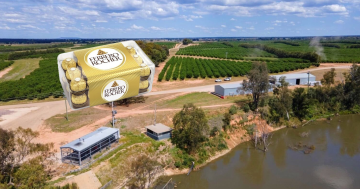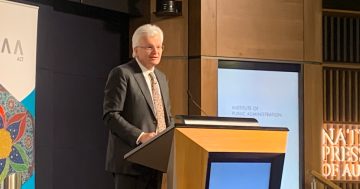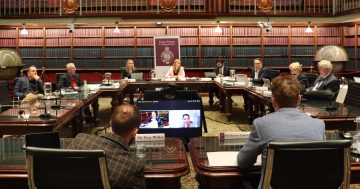
The public service is a lot more secretive than it should be. Image: Region.
How’s this for irony? You and I are known as ‘private’ citizens, yet government can find out all the intimate details about our lives. However, the so-called ‘public’ service gets to keep so much of its activity hidden from those of us who pay their salaries.
These days, the default position of federal, state and ACT government departments is to keep everything secret unless they are forced, kicking and screaming, to disclose.
We need to reverse the status quo: all decision-making processes should be open to public scrutiny unless bureaucrats can demonstrate a compelling case for privacy.
When a journalist asks a politician or public servant a question, we generally don’t get an answer. We get a statement, vaguely related to the topic of our enquiry.
This is frustrating because we often ask about things the public should have the right to know – like how and why governments spend our money.
For instance, last year, I discovered that Australian taxpayers had helped fund a $70 million hazelnut farm in the Riverina, which was set up by the Italian makers of Nutella.
This seemed a strange decision for two reasons.
First, we inhabit the driest continent on earth and our river system is dying. It takes 4769 litres of water to produce just one pound (450 grams) of hazelnuts. Why spend tax dollars to help a company grow such a thirsty crop?
Second, if we must subsidise irrigation, aren’t struggling Australian farmers more worthy recipients than wealthy foreign multinationals?
I rang up the federal Department of Climate Change, Energy, the Environment and Water (DCCEEW) seeking answers. I wanted to speak to those responsible for making this funding decision and ask them how much they gave the company and for what reason.
But departments now prevent journalists from talking directly to those who make policy. Instead, they direct us to the gatekeepers of their ‘media unit’ – a team of spin doctors whose job is to ensure the public sees as little information as possible.
This team didn’t answer any of my questions.
A few months later, I again contacted DCCEEW, wanting to know details about a program to buy back water from irrigators (apparently, they’re now trying to save our rivers instead of helping foreign nut farmers drain them).
The federal government had been accused of using our taxes to pay farmers 200 per cent above the market rate for their water. I asked the department to tell me the dollar figure they’d spent.
“We are continuing to work with Basin states and territories on the design and delivery of water recovery programs and vital water-saving infrastructure,” was their response.
Imagine having a similar exchange with a builder who renovated your kitchen.
Question: “Jim, just wanted to know why your final bill is $15,000 higher than your original quote.”
Answer: “We are continuing to work hard to design and deliver your vital kitchen infrastructure”.
We wouldn’t accept such a response from a tradesman, so we shouldn’t from our government departments.
However, entitled bureaucrats and politicians think they can get away with it.
It was the same story when I asked the state government agency Homes NSW why it chose an already insolvent builder to construct public housing in Wagga. Months into the project, the company went into liquidation, leaving mum and dad tradies thousands out of pocket. But for more than a year, Homes NSW has dodged questions on why and how this happened.
Ordinary members of the public are often treated with more even contempt than us reporters. They don’t even have a ‘media team’ to contact. A parent contacting an education department wanting to know, say, why their child’s school is being merged is likely to spend hours on the phone on hold or being handballed between bureaucrats.
The public service’s inbuilt secrecy is designed to shield it from scrutiny. In a democracy, we should know how our money is being spent and why decisions that impact our lives are being made.
Too often, irrelevant statements made by public agencies in response to questions are reported if they’re legitimate answers. Journalists should always call them out with the line, “the department refused to answer”.
Unless national security is at risk, there’s no justification for making basic information so hard to access. We are the public. They are our servants. It’s time they treated us as such.





















